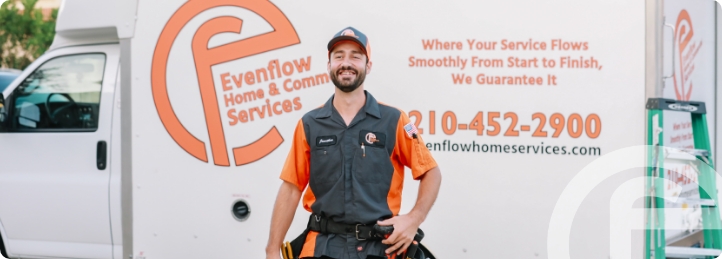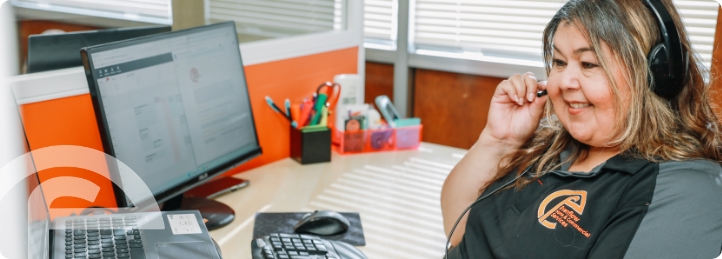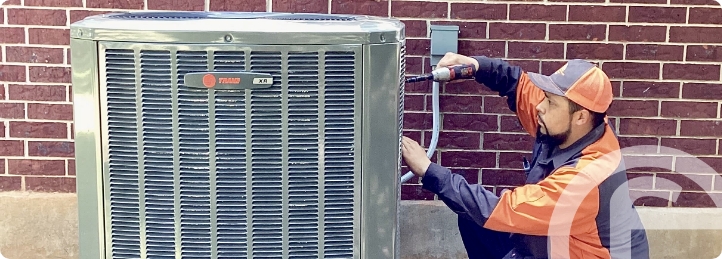HVAC

When your comfort is on the line, trust an HVAC service provider that delivers quality, reliability, and peace of mind. At Evenflow Home & Commercial Services, we specialize in keeping your indoor environment just right, whether you need heating, cooling, or ventilation solutions. Our team is dedicated to providing professional service backed by our core promises:
- Locally Owned and Operated
- Superior Customer Service With Every Job
- Rated “A” by the Better Business Bureau
With expert technicians and tailored solutions, we’re here to make your home or business feel just right all year round.
Where your service flows smoothly from start to finish: we guarantee it. Schedule an appointment with Evenflow Home & Commercial Services today!

Heating
At Evenflow Home & Commercial Services, we know that even in San Antonio, winter nights can get surprisingly chilly. That’s why we offer reliable heating services designed to keep your home warm and energy-efficient. Whether you need a new furnace installation, a heat pump replacement, or quick repairs on a cold night, our licensed HVAC professionals are ready to help. We work with leading brands and modern systems to ensure long-lasting comfort.
As a locally owned and operated business, we understand the unique climate challenges of South Texas. Our team provides honest assessments, upfront pricing, and heating solutions that fit your needs and budget. We also offer emergency repair services for unexpected breakdowns and preventative inspections to help you avoid them altogether.
When you choose Evenflow Home & Commercial Services, you’re choosing comfort backed by experience, craftsmanship, and a commitment to customer satisfaction.
Air Conditioning
San Antonio summers are no joke—and your home’s cooling system should never be either. At Evenflow Home & Commercial Services, we specialize in air conditioning services that keep your home cool and efficient all season long. From new AC installations and high-efficiency upgrades to repairs and refrigerant recharges, we do it all with precision and professionalism.
Our technicians are fully trained to diagnose and fix all makes and models, offering same-day service whenever possible. Whether your system is blowing warm air, making strange noises, or just not keeping up with the Texas heat, we’re here to restore your comfort fast.
We’re proud to provide superior customer service with every job and are consistently rated among the top service providers in the area. When you need dependable cooling you can count on, Evenflow Home & Commercial Services is the name to trust.

Maintenance: Join the ProFlow Elite Club!
Routine HVAC maintenance is the key to system longevity, energy savings, and peace of mind. At Evenflow Home & Commercial Services, we offer comprehensive maintenance plans designed to keep your heating, cooling, plumbing, and electrical systems operating at peak performance year-round.
Our maintenance visits include multi-point inspections, filter replacements, system cleanings, and performance checks tailored to your home and equipment. By catching issues early, we help prevent costly breakdowns and ensure your systems are ready for the demands of every season.
Homeowners across San Antonio choose our maintenance services not only for convenience but because they know our work is backed by a 100% satisfaction guarantee. Whether you’re preparing for winter, bracing for summer, or just want year-round reliability, Evenflow Home & Commercial Services has you covered.
Schedule an appointment with Evenflow Home & Commercial Services today!
